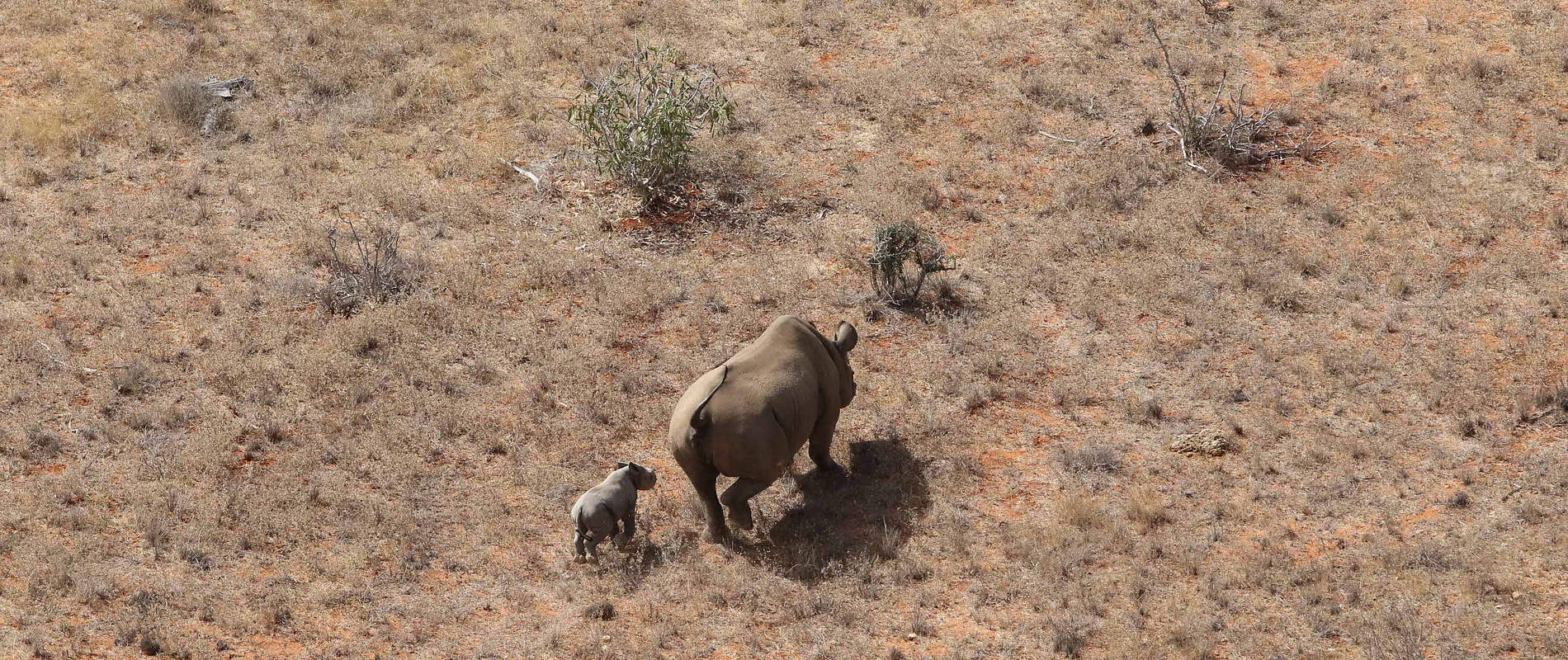Highlights of the month included 3 separate sightings of wild dog, one group numbering some 30 individuals. As vegetation dried out, several large sightings of rhino were recorded, and early in the month, a new born rhino was observed in Tsavo East, which was very exciting. A rare sighting of a melanistic serval near Roka on the Tiva River was also enjoyed by one of our pilots.
There was evidence of ivory poaching during the month when gunshots were reported and responded to by fixed wing aircraft, this was followed a few days later by two carcasses discovered during patrol. Both carcasses had already had their tusks removed; an investigation is ongoing.
Elsewhere, several elephants were found with various attempted poaching-related injuries. Some of these were found with minor arrow wounds and were not treated, however, 1 bull elephant was treated in the Northern Sector of Tsavo East with the help of DSWT’s airwing. Another elephant with a deep wound on its trunk, sighted by DSWT fixed wing in Rhino Valley in Tsavo West was treated by the Amboseli vet with help from DSWT’s helicopter. The helicopter was also involved on two occasions to drive elephants out of farms and back into Kibwezi Forest, which was successful on both occasions.

Two orphaned elephants were also airlifted with the help of the DSWT helicopter, one from near McKinnon Road and the other from the edge of Imenti Forest near Meru. The helicopter has proved incredibly effective in collecting these orphans on site, often dehydrated and stressed, and relocating them directly to the orphanage in Nairobi, which cuts down on transport time and the additional stress of travelling in several modes of transport.

On the 20th September, while on a routine fixed-wing patrol, the Tiva team leader spotted the tracks of what appeared to be a lone elephant calf wandering down the Tiva River. From the air, he was able to follow the tracks for a little over 20km before they disappeared. Fortunately, the mobile team was on patrol in the same area and two days later found the calf back in the riverbed and still alone.
The KWS/DSWT de-snaring team were able to rescue the little bull they drove him to the DSWT Ithumba relocation unit where he was placed in a taming stockade and cooled down with water and fed cut vegetation. Meanwhile plans were underway to transfer the calf to the Nairobi Nursery in a Cessna Caravan where it could receive specialised care.
A huge positive for the month of September was the conspicuous lack of charcoal kiln sightings in the Chyulu Hills National Park. This is a massive improvement, as over the past months, it has not been uncommon to see as many as 15 charcoal kilns in one flight.
